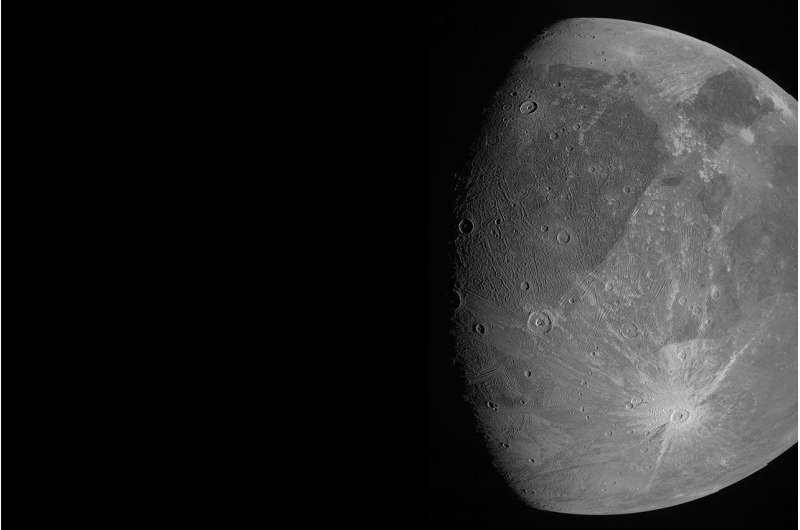
Copernical Team
Solar eclipse chaser: What to expect from this week's partial eclipse

In December 2020, in the middle of a pandemic, I made the somewhat questionable decision to fly 11,200km from where I live in Belfast, Northern Ireland to Santiago, Chile. Then, I boarded a connecting two-hour flight and drove for a further two hours, just to experience two minutes and 20 seconds of darkness.
I followed the guidelines of both the UK and Chilean governments. I got COVID-compliant travel insurance; I took a PCR test 72 hours before arriving in Chile; I wore a mask for the 15-hour flight and had my temperature taken in every building I entered. I also risked getting stranded on the other side of the world the week before Christmas, as the UK was considering banning domestic flights from England to Northern Ireland.
You might wonder why I'd go through all of this. The answer? To witness the most spectacular sight in nature: a total solar eclipse. Despite my endeavor, the Chilean weather thwarted my efforts and cloud coverage denied me a glimpse of the Sun's ethereal pearly atmosphere.
Spacecraft buzzes Jupiter's mega moon, 1st close-up in years

NASA's Juno spacecraft has provided the first close-ups of Jupiter's largest moon in two decades.
Juno zoomed past icy Ganymede on Monday, passing within 645 miles (1,038 kilometers).
Engineers design battery to power flying cars
 Engineers at Penn State published plans Monday for a battery prototype they said is capable of powering flying cars.
"I think flying cars have the potential to eliminate a lot of time and increase productivity and open the sky corridors to transportation," lead author Chao-Yang Wang said in a press release on the study, published in the journal Joule.
"But electric vertical takeo
Engineers at Penn State published plans Monday for a battery prototype they said is capable of powering flying cars.
"I think flying cars have the potential to eliminate a lot of time and increase productivity and open the sky corridors to transportation," lead author Chao-Yang Wang said in a press release on the study, published in the journal Joule.
"But electric vertical takeo Complex shapes of photons to boost future quantum technologies
 As the digital revolution has now become mainstream, quantum computing and quantum communication are rising in the consciousness of the field. The enhanced measurement technologies enabled by quantum phenomena, and the possibility of scientific progress using new methods, are of particular interest to researchers around the world.
Recently two researchers at Tampere University, Assistant P
As the digital revolution has now become mainstream, quantum computing and quantum communication are rising in the consciousness of the field. The enhanced measurement technologies enabled by quantum phenomena, and the possibility of scientific progress using new methods, are of particular interest to researchers around the world.
Recently two researchers at Tampere University, Assistant P Lunar IceCube passes critical testing at NASA's Goddard Space Flight Center
 The Lunar IceCube CubeSat successfully passed essential environmental testing at NASA's Goddard Space Flight Center in Greenbelt, Maryland. The spacecraft, pictured above, will fly aboard the upcoming Artemis I mission to the Moon as a secondary payload to investigate the amount and distribution of water ice on the Moon.
The spacecraft must go through intensive testing on Earth before flig
The Lunar IceCube CubeSat successfully passed essential environmental testing at NASA's Goddard Space Flight Center in Greenbelt, Maryland. The spacecraft, pictured above, will fly aboard the upcoming Artemis I mission to the Moon as a secondary payload to investigate the amount and distribution of water ice on the Moon.
The spacecraft must go through intensive testing on Earth before flig Radiation-hardened MOSFET qualified for commercial and military satellites and space power solutions
 Power supplies in space applications operate in environments that require enhanced radiation technology to withstand extreme particle interactions and solar and electromagnetic events.
These events degrade space-based systems and disrupt operations. To meet this requirement, Microchip Technology Inc. has announced the qualification of its M6 MRH25N12U3 radiation-hardened 250V, 0.21 Ohm Rds
Power supplies in space applications operate in environments that require enhanced radiation technology to withstand extreme particle interactions and solar and electromagnetic events.
These events degrade space-based systems and disrupt operations. To meet this requirement, Microchip Technology Inc. has announced the qualification of its M6 MRH25N12U3 radiation-hardened 250V, 0.21 Ohm Rds THOR hammers drones in new video animation
 The Air Force Research Laboratory has created a new video animation that realistically depicts THOR (Tactical High-power Operational Responder) destroying swarms of enemy drones in a base defense scenario.
In an effort to counter the increasing threat posed by enemy drones and other airborne threats, the Air Force developed THOR.
THOR is a prototype Directed Energy (DE) weapon used t
The Air Force Research Laboratory has created a new video animation that realistically depicts THOR (Tactical High-power Operational Responder) destroying swarms of enemy drones in a base defense scenario.
In an effort to counter the increasing threat posed by enemy drones and other airborne threats, the Air Force developed THOR.
THOR is a prototype Directed Energy (DE) weapon used t Organic molecules reveal clues about dying stars and outskirts of Milky Way
 Researchers from the University of Arizona will present findings from radio-astronomical observations of organic molecules at the 238th Meeting of the American Astronomical Society, or AAS, during a press conference titled "Molecules in Strange Places" at the 238th AAS Meeting on Tuesday, June 8, at 12:15 p.m. EDT.
A team led by Lucy Ziurys at the University of Arizona reports observations
Researchers from the University of Arizona will present findings from radio-astronomical observations of organic molecules at the 238th Meeting of the American Astronomical Society, or AAS, during a press conference titled "Molecules in Strange Places" at the 238th AAS Meeting on Tuesday, June 8, at 12:15 p.m. EDT.
A team led by Lucy Ziurys at the University of Arizona reports observations From burglar alarms to black hole detectors
 Last year, Anupam Mazumdar, a physicist from the University of Groningen, jointly proposed an experiment together with colleagues from the UK that could conclusively prove whether gravity is a quantum phenomenon. This experiment would focus on observing two relatively large, entangled quantum systems in free fall.
In a new article, published on 4 June in Physical Review Research, the scien
Last year, Anupam Mazumdar, a physicist from the University of Groningen, jointly proposed an experiment together with colleagues from the UK that could conclusively prove whether gravity is a quantum phenomenon. This experiment would focus on observing two relatively large, entangled quantum systems in free fall.
In a new article, published on 4 June in Physical Review Research, the scien Finding quasars: Rare extragalactic objects are now easier to spot
 Astrophysicists from the University of Bath have developed a new method for pinpointing the whereabouts of extremely rare extragalactic objects. They hope their technique for finding 'changing-look quasars' will take scientists one step closer to unravelling one of greatest mysteries of the universe - how supermassive black holes grow. Quasars are believed to be responsible for regulating the gr
Astrophysicists from the University of Bath have developed a new method for pinpointing the whereabouts of extremely rare extragalactic objects. They hope their technique for finding 'changing-look quasars' will take scientists one step closer to unravelling one of greatest mysteries of the universe - how supermassive black holes grow. Quasars are believed to be responsible for regulating the gr 